Nobel Prize in Literature
Since 1901, the Nobel Prize in Literature has been awarded annually to an author from any country who has, in the words of the will of Alfred Nobel, produced "in the field of literature the most outstanding work in an ideal direction". Though individual works are sometimes cited as being particularly noteworthy, here "work" refers to an author's work as a whole. The Swedish Academy decides who, if anyone, will receive the prize in any given year. The academy announces the name of the chosen laureate in early October. It is one of the five Nobel Prizes established by the will of Alfred Nobel in 1895; the others are the Nobel Prize in Chemistry, Nobel Prize in Physics, Nobel Peace Prize, and Nobel Prize in Physiology or Medicine.
As the Nobel Prize in Literature is awarded to an author, each book listed is merely given as an example of the author's work.
Link: Nobel Prize in Literature | More on Wikipedia
1. Afterlives
By Abdulrazak Gurnah | Year of Award: 2021
While he was still a little boy, Ilyas was stolen from his parents by the German colonial troops. After years away, fighting in a war against his own people, he returns to his village to find his parents gone, and his sister Afiya given away. Another young ... More »


2. The Wild Iris
By Louise Gluck | Year of Award: 2020
Helen Vendler wrote in The New Republic: 'Louise Glück is a poet of strong and haunting presence. Her poems, published in a series of memorable books over the last twenty years, have achieved the unusual distinction of being neither 'confessional' nor 'intellectual' in the usual senses of those ... More »
3. Short Letter, Long Farewell
By Peter Handke | Year of Award: 2019
By Nobel Prize Winner Peter HandkeShort Letter, Long Farewell is one the most inventive and exhilarating of the great Peter Handke's novels. Full of seedy noir atmospherics and boasting an air of generalized delirium, the book starts by introducing us to a nameless young German who has just ... More »


4. Flights
By Olga Tokarczuk | Year of Award: 2018
WINNER OF THE NOBEL PRIZE IN LITERATURE WINNER OF THE MAN BOOKER INTERNATIONAL PRIZE NATIONAL BOOK AWARD FINALIST FOR TRANSLATED LITERATURE A visionary work of fiction by "A writer on the level of W. G. Sebald" (Annie Proulx) "A magnificent writer." - Svetlana Alexievich, Nobel Prize-winning ... More »
5. The Remains of the Day
By Kazuo Ishiguro | Year of Award: 2017
The Remains of the Day is a profoundly compelling portrait of the perfect English butler and of his fading, insular world postwar England. At the end of his three decades of service at Darlington Hall, Stevens embarks on a country drive, during which he looks back over his ... More »


6. The Unwomanly Face of War: An Oral History of Women in World War II
By Svetlana Alexievich | Year of Award: 2015
A long-awaited English translation of the groundbreaking oral history of women in World War II across Europe and Russia-from the winner of the Nobel Prize in LiteratureNAMED ONE OF THE BEST BOOKS OF THE YEAR BY The Washington Post • The Guardian • NPR • The Economist • Milwaukee Journal Sentinel • Kirkus ReviewsFor more than three ... More »
7. Missing Person
By Patrick Modiano | Year of Award: 2014
Winner of the Prix GoncourtIn this strange, elegant novel, winner of France's premier literary prize, Patrick Modiano portrays a man in pursuit of the identity he lost in the murky days of the Paris Occupation, the black hole of French memory.For ten years Guy Roland has lived without ... More »

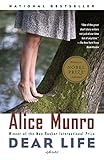
8. Dear Life: Stories
By Alice Munro | Year of Award: 2013
WINNER OF THE NOBEL PRIZE® IN LITERATURE 2013A New York Times Notable BookA Washington Post Notable Work of FictionA Best Book of the Year: The Atlantic, NPR, San Francisco Chronicle, Vogue, AV ClubIn story after story in this brilliant new collection, Alice Munro pinpoints the moment a person is ... More »
9. Red Sorghum: A Novel of China
By Mo Yan | Year of Award: 2012
The acclaimed novel of love and resistance during late 1930s China by Mo Yan, winner of the 2012 Nobel Prize in LiteratureSpanning three generations, this novel of family and myth is told through a series of flashbacks that depict events of staggering horror set against a landscape of ... More »

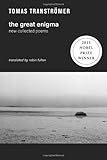
10. The Great Enigma: New Collected Poems
By Tomas Transtromer | Year of Award: 2011
The collected poems of one of the world's greatest living writers, Tomas Transtromer, available in this comprehensive edition.In day's first hours consciousness can grasp the world as the hand grips a sun-warmed stone. Translated into fifty languages, the poetry of Tomas Transtromer has ... More »
11. Conversation in the Cathedral
By Mario Vargas Llosa | Year of Award: 2010
A Haunting tale of power, corruption,and the complex search for identity Conversation in The Cathedral takes place in 1950s Peru during the dictatorship of Manuel A. Odría. Over beers and a sea of freely spoken words, the conversation flows between two individuals, Santiago and Ambrosia, who ... More »


12. The Hunger Angel
By Herta Muller | Year of Award: 2009
A masterful new novel from the winner of the 2009 Nobel Prize, hailed for depicting the "landscape of the dispossessed" with "the concentration of poetry and the frankness of prose" (Nobel Prize Committee)It was an icy morning in January 1945 when the patrol came for seventeen-year-old Leo Auberg ... More »
13. Desert
By J. M. G. Le Clezio | Year of Award: 2008
The Swedish Academy, in awarding J.M.G. Le Clézio the 2008 Nobel Prize in Literature, praised Desert as Le Clézio's ''definitive breakthrough as a novelist.'' Published in France in 1980, Desert received the Grand Prix Paul Morand from the Académie Française, was translated into twenty-three languages, and quickly proved ... More »


14. The Golden Notebook
By Doris Lessing | Year of Award: 2007
Anna is a writer, author of one very successful novel, who now keeps four notebooks. In one, with a black cover, she reviews the African experience of her earlier years. In a red one she records her political life, her disillusionment with communism. In a yellow one she ... More »
15. My Name Is Red
By Orhan Pamuk | Year of Award: 2006
One of the Nobel Prize winner’s best-loved novels, in a special edition featuring an introduction by the author and a chronology of Islamic and Western art history that provides additional context for this dazzling story of a murdered artist in sixteenth-century Istanbul. More »


16. Betrayal
By Harold Pinter | Year of Award: 2005
“One of the most essential artists produced by the twentieth century. Pinter’s work gets under our skin more than that of any living playwright.â€√Ǭù —New York TimesUpon its premiere at the National Theatre, Betrayal was immediately recognized as a masterpiece. It won the Olivier Award for best new ... More »
17. The Piano Teacher
By Elfriede Jelinek | Year of Award: 2004
The most popular work from provocative Austrian Nobel laureate Elfriede Jelinek, The Piano Teacher is a searing portrait of a woman bound between a repressive society and her darkest desires. Erika Kohut is a piano teacher at the prestigious and formal Vienna Conservatory, who still lives with her ... More »


18. Waiting for the Barbarians
By J. M. Coetzee | Year of Award: 2003
A modern classic, this early novel by Nobel Laureate J. M. Coetzee centers on the crisis of conscience and morality of the Magistrate-a loyal servant of the Empire working in a tiny frontier town, doing his best to ignore an inevitable war with the "barbarians." More »
19. Fatelessness
By Imre Kertesz | Year of Award: 2002
At the age of 14 Georg Koves is plucked from his home in a Jewish section of Budapest and without any particular malice, placed on a train to Auschwitz. He does not understand the reason for his fate. He doesn’t particularly think of himself as Jewish. And ... More »


20. A House for Mr. Biswas
By V. S. Naipaul | Year of Award: 2001
The early masterpiece of V. S. Naipaul’s brilliant career, A House for Mr. Biswas is an unforgettable story inspired by Naipaul's father that has been hailed as one of the twentieth century's finest novels.In his forty-six short years, Mr. Mohun Biswas has been fighting against destiny to achieve ... More »
21. Soul Mountain
By Gao Xingjian | Year of Award: 2000
In 1983, Chinese playwright, critic, fiction writer, and painter Gao Xingjian was diagnosed with lung cancer and faced imminent death.But six weeks later, a second examination revealed there was no cancer—he had won "a second reprieve from death." Faced with a repressive cultural environment and the threat of ... More »


22. The Tin Drum
By Gunter Grass | Year of Award: 1999
The Tin Drum, one of the great novels of the twentieth century, was published in Ralph Manheim’s outstanding translation in 1959. It became a runaway bestseller and catapulted its young author to the forefront of world literature.This fiftieth anniversary edition, translated by BreonMitchell, is more faithful to Grass’s ... More »
23. Blindness
By Jose Saramago | Year of Award: 1998
A city is hit by an epidemic of "white blindness" which spares no one. Authorities confine the blind to an empty mental hospital, but there the criminal element holds everyone captive, stealing food rations and raping women. There is one eyewitness to this nightmare who guides seven strangers-among ... More »


24. Accidental Death of an Anarchist
By Dario Fo | Year of Award: 1997
In its first two years of production, Dario Fo's controversial farce, Accidental Death of an Anarchist, was seen by over half a million people. It has since been performed all over the world and is widely recognised as a classic of modern drama. A sharp and hilarious satire ... More »
25. Poems New and Collected
By Wislawa Szymborska | Year of Award: 1996
Described by Robert Hass as "unquestionably one of the great living European poets" and by Charles Simic as "one of the finest poets living today," Szymborska mesmerizes her readers with poetry that captivates their minds and captures their hearts. This is the book that her many fans have ... More »


26. Opened Ground: Selected Poems, 1966-1996
By Seamus Heaney | Year of Award: 1995
As selected by the author, Opened Ground includes the essential work from Heaney's twelve previous books of poetry, as well as new sequences drawn from two of his landmark translations, The Cure at Troy and Sweeney Astray, and several previously uncollected poems. Heaney's voice is like no other--"by ... More »
27. A Personal Matter
By Kenzaburo Oe | Year of Award: 1994
Kenzaburo Oe, the winner of the 1994 Nobel Prize for Literature, is internationally acclaimed as one of the most important and influential post-World War II writers, known for his powerful accounts of the atomic bombing of Hiroshima and his own struggle to come to terms with a mentally ... More »


28. Beloved
By Toni Morrison | Year of Award: 1993
Winner of the Pulitzer Prize, Toni Morrison’s Beloved is a spellbinding and dazzlingly innovative portrait of a woman haunted by the past. Sethe was born a slave and escaped to Ohio, but eighteen years later she is still not free. She has borne the unthinkable and not gone mad, ... More »
29. Omeros
By Derek Walcott | Year of Award: 1992
A poem in five books, of circular narrative design, titled with the Greek name for Homer, which simultaneously charts two currents of history: the visible history charted in events -- the tribal losses of the American Indian, the tragedy of African enslavement -- and the interior, unwritten epic ... More »
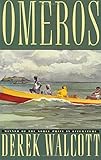

30. The Conservationist
By Nadine Gordimer | Year of Award: 1991
Mehring is rich. He has all the privileges and possessions that South Africa has to offer, but his possessions refuse to remain objects. His wife, son, and mistress leave him; his foreman and workers become increasingly indifferent to his stewarsship; even the land rises up, as drought, ... More »
31. The Labyrinth of Solitude
By Octavio Paz | Year of Award: 1990
Octavio Paz has long been acknowledged as Mexico's foremost writer and critic. In this international classic, Paz has written one of the most enduring and powerful works ever created on Mexico and its people, character, and culture. Compared to Ortega y Gasset's The Revolt of the Masses for ... More »


32. The Family of Pascual Duarte
By Camilo Jose Cela | Year of Award: 1989
The Family of Pascual Duarte is the story of Pascual Duarte -- a Spanish peasant born into a brutal world of poverty, hatred, and depravity -- as told from his prison cell, where he awaits execution for the murders he's committed throughout his lifetime. Despite his savage ... More »
33. The Cairo Trilogy
By Naguib Mahfouz | Year of Award: 1988
 Naguib Mahfouz’s magnificent epic trilogy of colonial Egypt appears here in one volume for the first time. The Nobel Prize—winning writer’s masterwork is the engrossing story of a Muslim family in Cairo during Britain’s occupation of Egypt in the early decades of the twentieth century. The novels of The ... More »


34. Watermark
By Joseph Brodsky | Year of Award: 1987
In this brief, intense, gem-like book, equal parts extended autobiographical essay and prose poem, Brodsky turns his eye to the seductive and enigmatic city of Venice. A mosaic of 48 short chapters—each recalling a specific episode from one of his many visits there (Brodsky spent his winters in ... More »
35. Death and the King's Horseman
By Wole Soyinka | Year of Award: 1986
This Norton Critical Edition of Death and the King's Horseman is the only student edition available in the United States. Based on events that took place in 1946 in the ancient Yoruban city of Oyo, Soyinka's acclaimed and powerful play addresses classic issues of cultural conflict, tragic decision-making, ... More »


37. The Poetry of Jaroslav Seifert
By Jaroslav Seifert | Year of Award: 1984
This is the best translated and largest edition of poetry by the Czechs' only Nobel Prize–winning poet, Jaroslav Seifert (he won the prize in 1984 and died in 1986). The poetry is surprising in its simplicity, sensual, thoughtful, moving, comic in turns. Author Milan Kundera has called this ... More »

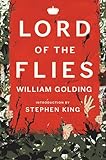
38. Lord of the Flies
By William Golding | Year of Award: 1983
The classic novel by William Golding With a new Introduction by Stephen King "To me Lord of the Flies has always represented what novels are for, what makes them indispensable." -Stephen King ... More »
39. One Hundred Years of Solitude
By Gabriel Garcia Marquez | Year of Award: 1982
A PBS Great American Read Top 100 PickOne of the twentieth century’s most beloved and acclaimed novels, One Hundred Years of Solitude tells the story of the rise and fall, birth and death of the mythical town of Macondo through the history of the Buendia family. Inventive, amusing, ... More »
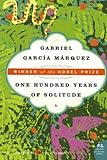

40. Auto-da-Fe
By Elias Canetti | Year of Award: 1981
Auto-da-Fé, Elias Canetti's only work of fiction, is a staggering achievement that puts him squarely in the ranks of major European writers such as Robert Musil and Hermann Broch. It is the story of Peter Kien, a scholarly recluse who lives among and for his great library. The ... More »
41. The Captive Mind
By Czeslaw Milosz | Year of Award: 1980
The best known prose work by the winner of the 1980 Nobel Prize for Literature examines the moral and intellectual conflicts faced by men and women living under totalitarianism of the left or right. More »


42. The Collected Poems of Odysseus Elytis
By Odysseus Elytis | Year of Award: 1979
In awarding Odysseus Elytis the 1979 Nobel Prize in literature, the Swedish Academy praised him "for his poetry, which, against the background of Greek tradition, depicts with sensuous strength and intellectual clearsightedness modern man's struggle for freedom and creativeness." Throughout his long career as a poet, Elytis (1911–1996) ... More »
43. Enemies, A Love Story
By Isaac Bashevis Singer | Year of Award: 1978
Almost before he knows it, Herman Broder, refugee and survivor of World War II, has three wives: Yadwiga, the Polish peasant who hid him from the Nazis; Masha , his beautiful and neurotic true love; and Tamara, his first wife, miraculously returned from the dead. Astonished by ... More »


44. A Longing for the Light: Selected Poems of Vicente Aleixandre
By Vicente Aleixandre | Year of Award: 1977
“For the Nobel Prize to come to Aleixandre now is fitting, not only because of the energy and intensity of his own poetry, but because it comes at this moment in Spanish history.â€√Ǭù—The New York Times A Longing for the Light is the only available bilingual Spanish-English translation ... More »
45. Henderson the Rain King
By Saul Bellow | Year of Award: 1976
Henderson has come to Africa on a spiritual safari, a quest for the truth. His feats of strength, his passion for life, and, most importantly, his inadvertant success in bringing rain have made him a god-like figure among the tribes. More »


46. The Collected Poems of Eugenio Montale: 1925-1977
By Eugenio Montale | Year of Award: 1975
A majestic translation of one of the Nobel Prize-winning masters of twentieth-century poetry. Hailed as one of the key poets of the modern era, Eugenio Montale changed Italian poetry forever and helped to create international Modernism. Steeped in the tradition of Dante, Petrarch, and Leopardi, yet fiercely innovative, ... More »


48. The Procession of Memories
By Harry Martinson | Year of Award: 1974
Fatherless and abandoned by his mother at age six, Nobel Laureate, Harry Martinson, grew up mostly in rural foster homes in the south of Sweden in the early years of the 20th century. He left school at thirteen and became a sailor and vagabond--a global nomad--at sixteen. ... More »
49. The Vivisector
By Patrick White | Year of Award: 1973
Join J. M. Coetzee and Thomas Keneally in rediscovering Nobel Laureate Patrick WhiteHurtle Duffield, a painter, coldly dissects the weaknesses of any and all who enter his circle. His sister's deformity, a grocer's moonlight indiscretion, the passionate illusions of the women who love him-all are used as fodder ... More »

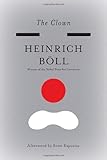
50. The Clown
By Heinrich Boll | Year of Award: 1972
Acclaimed entertainer Hans Schneir collapses when his beloved Marie leaves him because he won’t marry her within the Catholic Church. The desertion triggers a searing re-examination of his life—the loss of his sister during the war, the ... More »
51. The Essential Neruda: Selected Poems
By Pablo Neruda | Year of Award: 1971
This collection of Neruda's most essential poems will prove indispensable. Selected by a team of poets and prominent Neruda scholars in both Chile and the U.S., this is a definitive selection that draws from the entire breadth and width of Neruda's various styles and themes. An impressive group ... More »


52. The Gulag Archipelago, 1918-1956
By Aleksandr Isayevich Solzhenitsyn | Year of Award: 1970
The Gulag Archipelago is Solzhenitsyn’s attempt to compile a literary-historical record of the vast system of prisons and labor camps that came into being shortly after the Bolsheviks seized power in Russia in 1917 and that underwent an enormous expansion during the rule of Stalin from 1924 to ... More »
53. Malone Dies
By Samuel Beckett | Year of Award: 1969
(Book Jacket Status: Jacketed)The first novel of Samuel Beckett's mordant and exhilarating midcentury trilogy introduces us to Molloy, who has been mysteriously incarcerated, and who subsequently escapes to go discover the whereabouts of his mother. In the latter part of this curious masterwork, a certain Jacques Moran is ... More »


54. Snow Country
By Yasunari Kawabata | Year of Award: 1968
Nobel Prize winner Yasunari Kawabata’s Snow Country is widely considered to be the writer’s masterpiece: a powerful tale of wasted love set amid the desolate beauty of western Japan.  At an isolated mountain hot spring, with snow blanketing every surface, Shimamura, a wealthy dilettante meets Komako, a ... More »
55. The President
By Miguel Angel Asturias | Year of Award: 1967
Winner! Nobel Prize for Literature. Guatemalan diplomat and writer Miguel Angel Asturias (1899-1974) began this award-winning work while still a law student. It is a story of ruthless dictator and his schemes to dispose of a political adversary in an unnamed Latin American country usually identified as Guatemala. ... More »


56. Collected Poems I: (1944-1949)
By Nelly Sachs | Year of Award: 1966
Nobel Prize-winning poet Nelly Sachs escaped Nazi Germany to Sweden, where she wrote these and other brilliant poems as a “mute outcryâ€√Ǭù to the Holocaust. More »
57. Shira
By Shmuel Yosef Agnon | Year of Award: 1966
Final novel by the Nobel Laureate. Set against the backdrop of 1930s Jerusalem. A tragic love story. More »


58. And Quiet Flows the Don
By Mikhail Aleksandrovich Sholokhov | Year of Award: 1965
This is volume 1 of a five volume set. Sholokhov's book introduces the reader to a New World that is not merely the Don Region, but the world of the author's inimitably poetic prose; giving fifteen years of his life to the creation of And Quiet Flows ... More »
59. Nausea
By Jean-Paul Sartre | Year of Award: 1964
Sartre's greatest novel — and existentialism's key text — now introduced by James Wood.Nausea is the story of Antoine Roquentin, a French writer who is horrified at his own existence. In impressionistic, diary form he ruthlessly catalogs his every feeling and sensation. His thoughts culminate in a pervasive, ... More »


60. George Seferis: Collected Poems
By Giorgos Seferis | Year of Award: 1963
In this new edition of George Seferis's poems, the acclaimed translations by Edmund Keeley and Philip Sherrard are revised and presented in a compact, English-only volume. The revision covers all the poems published in Princeton's earlier bilingual edition, George Seferis: Collected Poems (expanded edition, 1981). Winner of the ... More »
61. Of Mice And Men
By John Steinbeck | Year of Award: 1962
A controversial tale of friendship and tragedy during the Great Depression  They are an unlikely pair: George is "small and quick and dark of face"; Lennie, a man of tremendous size, has the mind of a young child. Yet they have ... More »


62. The Bridge on the Drina
By Ivo Andric | Year of Award: 1961
The Bridge on the Drina is a vivid depiction of the suffering history has imposed upon the people of Bosnia from the late 16th century to the beginning of World War I. As we seek to make sense of the current nightmare in this region, this remarkable, timely ... More »
63. Selected Poems
By Saint-John Perse | Year of Award: 1960
Poems by the Nobel prizewinner deal with the regeneration of life, the purity of nature, and our relationship with time and the worldTitle: Selected PoemsAuthor: Saint-John Perse/ Perse, Saint-John/ Caws, Mary AnnPublisher: W W Norton & Co IncPublication Date: 1982/11/01Number of Pages: Binding Type: PAPERBACKLibrary of Congress: 82008305 More »


64. Night Fountain
By Salvatore Quasimodo | Year of Award: 1959
'Salvatore Quasimodo was born-and lived-through historical tragedies which impressed his mind for ever. What one hears in his lines are the tears of mankind and its wail. Sonzogni and Dawe have captured the singular strength of Quasimodo and heard the penetrating voices of humanity. Their translations of this ... More »
65. Doctor Zhivago
By Boris Pasternak | Year of Award: 1958
First published in Italy in 1957 amid international controversy, Doctor Zhivago is the story of the life and loves of a poet/physician during the turmoil of the Russian Revolution. Taking his family from Moscow to what he hopes will be shelter in the Ural Mountains, Zhivago finds himself ... More »
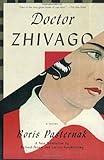

66. The Stranger
By Albert Camus | Year of Award: 1957
Albert Camus's spare, laconic masterpiece about a Frenchman who murders an Arab in Algeria is famous for having diagnosed, with a clarity almost scientific, that condition of reckless alienation and spiritual exhaustion that characterized so much of twentieth-century life. Possessing both the force of a parable and the ... More »
67. Platero and I
By Juan Ramon Jimenez | Year of Award: 1956
: One of the great classics of modern Spanish literature. Sheer descriptive magic. Time An exquisite bookrich, shimmering, truly incomparable. The New Yorker This enchanting dialogue, or is it a monologue, between a man and his burro has been translated with great skill and sympathy. Winthrop Sargeant In ... More »


68. Independent People
By Halldor Kiljan Laxness | Year of Award: 1955
This magnificent novel—which secured for its author the 1955 Nobel Prize in Literature—is at least available to contemporary American readers. Although it is set in the early twentieth century, it recalls both Iceland's medieval epics and such classics as Sigrid Undset's Kristin Lavransdatter. And if Bjartur of Summerhouses, ... More »
69. The Sun Also Rises
By Ernest Hemingway | Year of Award: 1954
The quintessential novel of the Lost Generation, The Sun Also Rises is one of Ernest Hemingway's masterpieces and a classic example of his spare but powerful writing style. A poignant look at the disillusionment and angst of the post-World War I generation, the novel introduces two of Hemingway's ... More »


70. A History of the English-Speaking Peoples
By Winston Churchill | Year of Award: 1953
An authoritative survey of the history of English-speaking peoples throughout the world combines intriguing, closely observed biographical profiles—of Alfred the Great, Victoria, Joan of Arc, Lincoln, and other notables—with an account of the key events and issues of the era. The narrative commences fifty-five ... More »
71. Viper's Tangle
By Francois Mauriac | Year of Award: 1952
“Mauriac’s best novel.â€√Ǭù—Catholic World “A lucid and penetrating study . . . Mauriac proves himself as good a storyteller as he is a psychologist.â€√Ǭù—The New York Times “A most admirable and exciting novel.â€√Ǭù—New StatesmanThe masterpiece of one of the twentieth century’s greatest Catholic writers, Vipers’ Tangle ... More »


72. The Sibyl
By Par Fabian Lagerkvist | Year of Award: 1951
In this powerful, poetic, and moving parable, the Wandering Jew of medieval Christian legend journeys to Delphi to consult the famed oracle of the pagans. He is turned away but not before learning that one of the most adept of the old priestesses, or sibyls, lives in disgrace ... More »
73. A History of Western Philosophy
By Bertrand Russell | Year of Award: 1950
Hailed as “lucid and magisterialâ€√Ǭù by The Observer, this book is universally acclaimed as the outstanding one-volume work on the subject of Western philosophy.Considered to be one of the most important philosophical works of all time, the History of Western Philosophy is a dazzlingly unique ... More »


74. The Sound and the Fury
By William Faulkner | Year of Award: 1949
The text of this Norton Critical Edition is that of the corrected edition scrupulously prepared by Noel Polk, whose textual note precedes the text. David Minter’s annotations are designed to assist the reader with obscure words and allusions. "Backgrounds" begins with the appendix Faulkner wrote in 1945 and ... More »
75. The Waste Land
By T. S. Eliot | Year of Award: 1948
The text of Eliot’s 1922 masterpiece is accompanied by thorough explanatory annotations as well as by Eliot’s own knotty notes, some of which require annotation themselves. For ease of reading, this Norton Critical Edition presents The Waste Land as it first appeared in the American edition (Boni & ... More »


76. The Counterfeiters
By Andre Gide | Year of Award: 1947
A young artist pursues a search for knowledge through the treatment of homosexuality and the collapse of morality in middle class France. More »
77. Siddhartha
By Herman Hesse | Year of Award: 1946
This classic novel of self-discovery has inspired generations of seekers. With parallels to the enlightenment of the Buddha, Hesse's Siddhartha is the story of a young Brahmin's quest for the ultimate reality. His quest takes him from the extremes of indulgent sensuality to the rigors of ascetism and ... More »
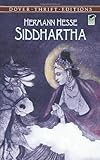

78. Madwomen: The "Locas mujeres" Poems of Gabriela Mistral
By Gabriela Mistral | Year of Award: 1945
Winner, Corneliu M Popescu Prize for Poetry Translation (UK)The Chilean poet Gabriela Mistral, magisterially translated into English by Randall Couch, is not only hair-raising, she took the top of my head off. The voices of her Madwomen, her Locas mujeres, in their austerity and eerily controlled emotion, now ... More »
79. The Fall of the King
By Johannes Jensen | Year of Award: 1944
Taking place during the first half of the sixteenth century, The Fall of the King tells the story of dreamy, slacking student Mikkel Thøgersen and the entanglements that ultimately bring him into service as a mercenary under King Christian II of Denmark. Moving from the Danish countryside to ... More »


81. The Good Earth
By Pearl Buck | Year of Award: 1938
ENDURING LITERATURE ILLUMINATED BY PRACTICAL SCHOLARSHIP A poignant tale about the life and labors of a Chinese farmer during the sweeping reign of the country¹s last emperor. EACH ENRICHED CLASSIC EDITION INCLUDES: • A concise introduction that gives readers important background information • A ... More »


82. The Thibault
By Roger Martin du Gard | Year of Award: 1937
This is a reproduction of a book published before 1923. This book may have occasional imperfections such as missing or blurred pages, poor pictures, errant marks, etc. that were either part of the original artifact, or were introduced by the scanning process. We believe this work is culturally ... More »


84. One, No One, and One Hundred Thousand
By Luigi Pirandello | Year of Award: 1934
One, No one and One Hundred Thousand (Italian: Uno, Nessuno e Centomila) is a 1926 novel by the Italian writer Luigi Pirandello. The novel had a rather long ... More »
85. Dark Avenues
By Ivan Alekseyevich Bunin | Year of Award: 1933
One of the great achievements of 20th-century Russian émigré literature, Dark Avenues—the culmination of a life’s work of unrelenting challenge to Soviet dogma—took Bunin’s poetic mastery of language, eventually known for its richness as "Bunin brocade," to new heights. Written between 1938 and 1944 ... More »

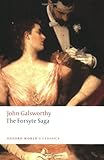
86. The Forsyte Saga
By John Galsworthy | Year of Award: 1932
The three novels which make up The Forsyte Saga chronicle the ebbing social power of the commercial upper-middle class Forsyte family between 1886 and 1920. Galsworthy's masterly narrative examines not only their fortunes but also the wider developments within society, particularly the changing position of women. This is ... More »
87. Arcadia Borealis: Selected Poems of Erik Axel Karlfeldt
By Erik Axel Karlfeldt | Year of Award: 1931
Arcadia Borealis was first published in 1938. Minnesota Archive Editions uses digital technology to make long-unavailable books once again accessible, and are published unaltered from the original University of Minnesota Press editions. More »


88. Main Street
By Sinclair Lewis | Year of Award: 1930
Advice for first time readers of Sinclair Lewis: Start with Main Street. I started with Babbitt, a worthy novel, but inferior to Main Street. They share a nimble, though often heavy handed touch of irony, and good characterization; and Mr. Lewis trenchant social commantary is present in both. ... More »
89. The Magic Mountain
By Thomas Mann | Year of Award: 1929
 With this dizzyingly rich novel of ideas, Thomas Mann rose to the front ranks of the great modern novelists, winning the Nobel Prize in Literature in 1929. The Magic Mountain takes place in an exclusive tuberculosis sanatorium in the Swiss Alps–a community devoted to sickness that serves as ... More »


90. Kristin Lavransdatter
By Sigrid Undset | Year of Award: 1928
The turbulent historical masterpiece of Norway’s literary masterIn her great historical epic Kristin Lavransdatter, set in fourteenth-century Norway, Nobel laureate Sigrid Undset tells the life story of one passionate and headstrong woman. Painting a richly detailed backdrop, Undset immerses readers in the day-to-day life, social conventions, and political ... More »
91. The Creative Mind: An Introduction to Metaphysics
By Henri Bergson | Year of Award: 1927
The final published book by Nobel Prize-winning author and philosopher Henri Bergson (1859-1941), La pensée et le mouvant (translated here as The Creative Mind), is a masterly autobiography of his philosophical method. Through essays and lectures written between 1903 and 1923, Bergson retraces how and why he became ... More »
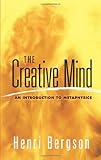

92. Reeds in the Wind
By Grazia Deledda | Year of Award: 1926
The rugged landscape of Baronia on Sardinia sets the scene for this novel of crime, guilt and retribution. This novel presents the story of the Pintor sisters - from a family of noble landowners now in decline - their nephew Giacinto, and their servant Efix, who is trying ... More »
93. Man and Superman
By George Bernard Shaw | Year of Award: 1925
Shaw began writing MAN AND SUPERMAN in 1901 and determined to write a play that would encapsulate the new century's intellectual inheritance. Shaw drew not only on Byron's verse satire, but also on Shakespeare, the Victorian comedy fashionable in his early life, and from authors from Conan ... More »


94. The Comedienne
By Wladyslaw Stanislaw Reymont | Year of Award: 1924
Wladyslaw Stanislaw Reymont (1868-1925) was a Polish author, and Nobel laureate. His best known work is the novel Chlopi. In 1894 he began to send his short stories to different magazines, and, encouraged by good reviews, decided to write novels: Komediantka (The Deceiver) (1895) and Fermenty (Ferments) (1896). ... More »
95. The Collected Poems of W.B. Yeats
By William Butler Yeats | Year of Award: 1923
The Collected Poems of W. B. Yeats includes all of the poems authorized by Yeats for inclusion in his standard canon. Breathtaking in range, it encompasses the entire arc of his career, from luminous reworkings of ancient Irish myths and legends to passionate meditations on the demands and ... More »


97. The Gods Will Have Blood
By Anatole France | Year of Award: 1921
It is April 1793 and the final power struggle of the French Revolution is taking hold: the aristocrats are dead and the poor are fighting for bread in the streets. In a Paris swept by fear and hunger lives Gamelin, a revolutionary young artist appointed magistrate, and given ... More »

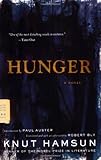
98. Hunger
By Knut Hamsun | Year of Award: 1920
A true classic of modern literature that has been described as “one of the most disturbing novels in existenceâ€√Ǭù (Time Out), Hunger is the story of a Norwegian artist who wanders the streets, struggling on the edge of starvation. As hunger overtakes him, he slides inexorably into paranoia ... More »


100. Minna
By Karl Adolph Gjellerup | Year of Award: 1917
As I perused a copy of Thomas Moore s Irish Melodies, bequeathed to me, with some more favourite books (E nglish and German classics), by my late friend Harold Fenger, I found this exquisite inscription strongly underlined with pencil. So I thought it fit to place it as ... More »
101. Lucky Per
By Henrik Pontoppidan | Year of Award: 1917
Lucky Per, written at the turn from the nineteenth to the twentieth century (1898-1904), has never before been translated into English, although its author, Henrik Pontoppidan, won the Nobel Prize in literature in 1917 together with his Danish countryman Karl Adolph Gjellerup. Indeed, Pontoppidan’s novel was singled out ... More »


102. Charles Men
By Carl Gustaf Verner von Heidenstam | Year of Award: 1916
The Charles Men tells of the fall of the Swedish empire, the desperate conditions of an inflexible ruler for what he believed to be true and right, the boundless suffering of an ill-fated people, the ravages of hunger which they endured their inevitable ruin and eternal glory. ... More »
103. The Life of Ramakrishna
By Romain Rolland | Year of Award: 1915
The life and teachings of the 19th-century saint Ramakrishna, as written by a winner of the Nobel Prize in Literature in the early 1900s. Used in many colleges as an introduction to the saint. Beautiful translation from the French edition. More »


104. The Home and the World
By Rabindranath Tagore | Year of Award: 1913
Set on a Bengali noble's estate in 1908, this is both a love story and a novel of political awakening. The central character, Bimala, is torn between the duties owed to her husband, Nikhil, and the demands made on her by the radical leader, Sandip. Her attempts to ... More »
105. Three Plays : The Weavers, Hannele, the Beaver Coat
By Gerhart Hauptmann | Year of Award: 1912
Three Plays representative of an important period in twentieth- century drama! A good part of modern drama owes its techniques and its intense awareness of social and psychological problems to the German playwright who was awarded the Nobel Prize for Literature in 1912. Hauptmann's achievements had great influence ... More »


106. The Life of the Bee
By Maurice Maeterlinck | Year of Award: 1911
This anthology is a thorough introduction to classic literature for those who have not yet experienced these literary masterworks. For those who have known and loved these works in the past, this is an invitation to reunite with old friends in a fresh new format. From Shakespeare’s ... More »
107. The Children of the World
By Paul Heyse | Year of Award: 1910
This is an EXACT reproduction of a book published before 1923. This IS NOT an OCR'd book with strange characters, introduced typographical errors, and jumbled words. This book may have occasional imperfections such as missing or blurred pages, poor pictures, errant marks, etc. that were either part ... More »


108. The Saga of Gosta Berling
By Selma Lagerlof | Year of Award: 1909
One hundred years ago, Selma Lagerlöf became the first woman to win the Nobel Prize in Literature. She assured her place in Swedish letters with this sweeping historical epic, her first and best-loved novel, and the basis for the 1924 silent film of the same name that launched ... More »
109. The Meaning And Value Of Life
By Rudolf Eucken | Year of Award: 1908
Originally published in 1887. 'Has human life any meaning and value? In asking this question we are under no illusion. We know that we cannot pose to-day as the possessors of a truth which we have but to un-fold. The question confronts us as a problem that is ... More »


110. The Jungle Book
By Rudyard Kipling | Year of Award: 1907
Rudyard Kipling had never visited the jungles of Central India, yet his descriptions have a breathtaking imaginative power; and in Mowgli, the boy who grows up among wolves, he created one of the most popular and enduring of modern literary myths. Mowgli's companions and enemies include such unforgettable ... More »
111. Poems Of Giosue Carducci: Hellenic Reaction In Italy And The Classic Realism
By Giosue Carducci | Year of Award: 1906
This scarce antiquarian book is a facsimile reprint of the original. Due to its age, it may contain imperfections such as marks, notations, marginalia and flawed pages. Because we believe this work is culturally important, we have made it available as part of our commitment for protecting, preserving, ... More »


112. Fire in the Steppe
By Henryk Sienkiewicz | Year of Award: 1905
Close on the heels of the magnificent With Fire and Sword and The Deluge, comes this impassioned tale of love, war, heroism, treason and betrayal, with which the great classic Trilogy of Poland's most popular 19th century writer is brought to an end. Fire in the Steppe is ... More »
113. Tierra del Fuego (Patagonia)
By Jose Eizaguirre | Year of Award: 1904
Recuerdos e impresiones de un viaje al extremo austral de la Republica. El autor reunio en forma de volumen una coleccion de articulos periodisticos que habia publicado originalmente durante el transcurso del ano 1891 en el diario Sud America. Esas notas consistieron en el primer trabajo periodistico de ... More »


114. Mireio: A Provencal Poem
By Frederic Mistral | Year of Award: 1904
Provengal traditions to be revived, and a vast future inaugurated :pretensions which would have seemed almost droll to the Gascon Jasmin, with his exquisite humour and his adorable simplicity. I can do no more than glance in this place at the history of the self-styled Provengal Revival, the ... More »
115. A Happy Boy
By Bjornstjerne Bjornson | Year of Award: 1903
This collection of literature attempts to compile many of the classic, timeless works that have stood the test of time and offer them at a reduced, affordable price, in an attractive volume so that everyone can enjoy them. More »


116. The History of Rome
By Christian Mommsen | Year of Award: 1902
The History of Rome (German: Römische Geschichte) is a multi-volume history of ancient Rome written by Theodor Mommsen (1817–1903). Originally published by Reimer & Hirsel, Leipzig, as three volumes during 1854-1856, the work dealt ... More »
117. Solitudes, Les
By Sully Prudhomme | Year of Award: 1901
Ce livre est une oeuvre du domaine public éditée au format numérique par Norph-Nop. L’achat de l’édition Kindle inclut le téléchargement via un réseau sans fil sur votre liseuse et vos applications de lecture Kindle More »

The above description is from the Wikipedia article on the Nobel Prize in Literature, licensed under CC-BY-SA 3.0. A full list of contributors can be found here.